Rishi Sunak is the Prime Minister of the United Kingdom. He will declare a “critical national endeavor” as he unveils a two hundred-and fifty-two-million-dollar package of investment aimed at securing the future of the U.K.’s nuclear industry and boosting jobs.
The Prime Minister will introduce a new fund backed by twenty-five million dollars a year in public money for the next decade to support growth in Barrow-in-Furness. It is the Cumbrian town that is home to Britain’s Astute class submarines and forthcoming Dreadnought program.
Sunak says that the money will provide grants to local organizations and improvements to transport and health projects in the area.
The nuclear industry in the U.K. is expected to require fifty percent more skilled workers in the next decade as it becomes more central to UK energy and national security.
Sunak’s announcement comes amid concerns about the U.K.’s level of defense spending as two serving ministers have urged Sunak to increase defense spending to at least two and a half percent of GDP. They advocate this increased defense spending in the face of escalating Russian aggression and concerns about stability in the Middle East.
There was no increase of defense spending in the spring budget as chancellor Jeremy Hunt told MPs, “Our spending will rise to 2.5 per cent [of GDP] as soon as economic conditions allow,” without detailing how that would happen.
Defense Secretary Grant Shapps has also admitted that he’d like to see a “bigger budget” from the current level of just over two percent and he called for military spending to be increased to three percent of GDP.
Sunak has said the government has already announced the largest sustained increase in defense spending since the Cold War. He added that the budget was “recently topped up with billions of pounds to strengthen our nuclear enterprise and rebuild stockpiles.”
Today’s announcement also includes a significant infusion of cash from industry leaders including BAE Systems, Rolls-Royce, EDF and Babcock. They will be investing 960m million dollars between them in skills, jobs and education.
Before a visit to Barrow-in-Furness on Monday, the Prime Minister said, “Safeguarding the future of our nuclear deterrent and nuclear energy industry is a critical national endeavor. “In a more dangerous and contested world, the UK’s continuous at-sea nuclear deterrent is more vital than ever. And nuclear delivers cheaper, cleaner homegrown energy for consumers.”
He added, “That’s why we are investing in Barrow, the home of UK submarines, and in the jobs and skills of the future in the thriving British nuclear industry. Today we usher in the next generation of our nuclear enterprise, which will keep us safe, keep our energy secure, and keep our bills down for good.”
Nuclear industry leaders have welcomed the plans. Charles Woodburn is the CEO of BAE Systems. He said, “Barrow is at the heart of the UK’s submarine enterprise and as the custodian of our submarine design and build capability, we’re incredibly proud of the role we play in the Astute, Dreadnought and now SSN-AUKUS program.”
David Lockwood is the CEO of Babcock International. He said the measures were a “fantastic opportunity for the UK to deliver a stronger nuclear industry that will contribute to the resilience of the UK’s independent deterrent and will support the UK’s energy security ambitions and net zero targets.”
Blog
-
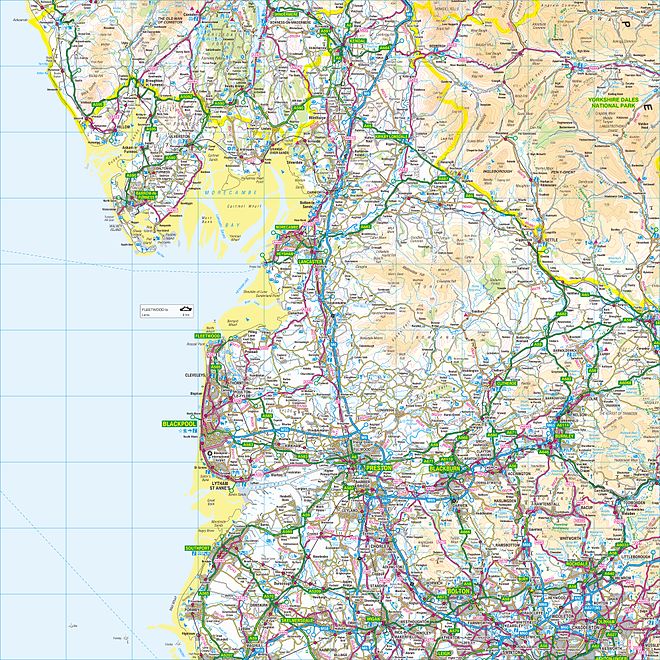
Nuclear Reactors 1360 – U.K. Prime Minister Announces Two Hundred Sixty Million Dollar Grant For Barrow-in-Furness
-
Nuclear News Roundup March 26, 2024
Restarted Namibian mine transitions to commercial operation world-nuclear-news.org
IAEA confirms nuclear security improvements at Japanese plant world-nuclear-news.org
US, ROK and Japan hold nuclear bomber drills after North Korean missile launch nknews.org
Boeing awarded contract to operate nuclear missile test facility aerospacetestinginternational.com
-
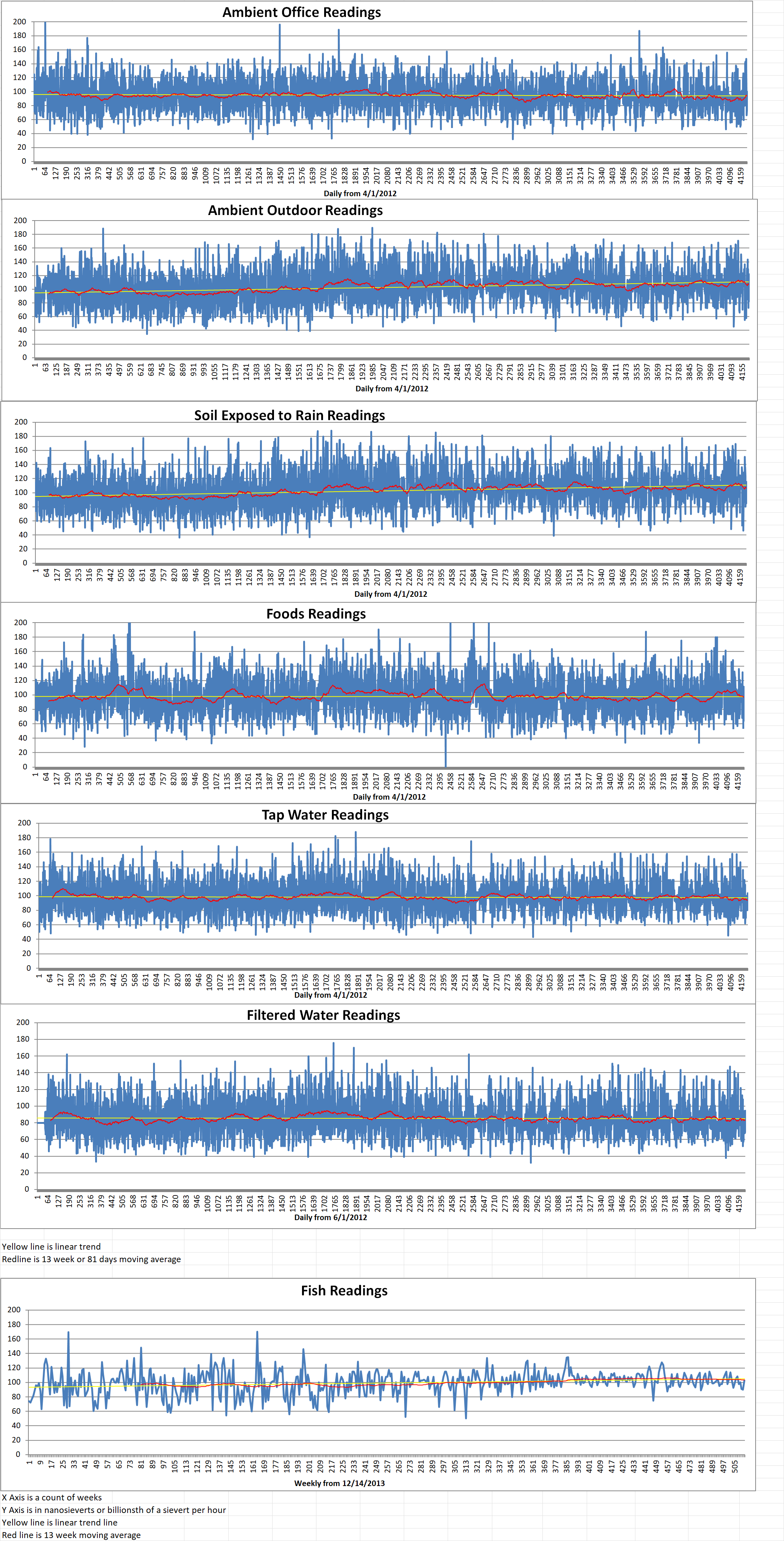
Geiger Readings for March 26, 2024
Ambient office = 87 nanosieverts per hour
Ambient outside = 111 nanosieverts per hour
Soil exposed to rain water = 109 nanosieverts per hour
Mini cucumber from Central Market = 111 nanosieverts per hour
Tap water = 94 nanosieverts per hour
Filter water = 89 nanosieverts per hour
-
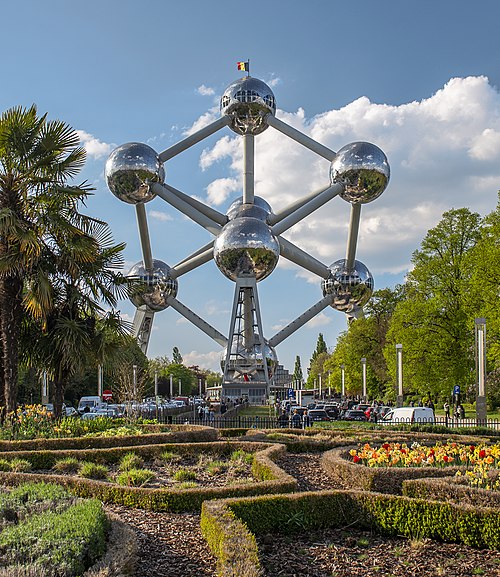
Nuclear Reactors 1359 – 34 Nations Met In Brussels For A Nuclear Power Summit
In the shadow of a huge monument glorifying nuclear power in Brussels, Belgium, thirty-four nations from around the world pledged to use nuclear power to help achieve a climate-neutral globe while providing countries with an added sense of strategic security.
The idea of a Nuclear Energy Summit would have been hard to imagine a dozen years ago after the 2011 Fukushima nuclear accident in Japan. However, the tide has turned in recent years. Global warming has made it necessary to phase out fossil fuels, while the war in Ukraine has laid bare Europe’s dependence on Russian energy.
Rafael Grossi is the head of the International Atomic Energy Agency. He said, “We have to do everything possible to facilitate the contribution of nuclear energy. It is clear: Nuclear is here. It has an important role to play.”
Thirty-four nations, including the United States, China, France, Britain and Saudi Arabia, committed “to work to fully unlock the potential of nuclear energy by taking measures such as enabling conditions to support and competitively finance the lifetime extension of existing nuclear reactors, the construction of new nuclear power plants and the early deployment of advanced reactors. A statement was released that read, “We commit to support all countries, especially emerging nuclear ones, in their capacities and efforts to add nuclear energy to their energy mixes.”
The one-day meeting was held in Brussels next to the 1958 Atomium which is a three hundred-and thirty-five-foot-tall construction of nine iron atoms. It was constructed to promote the peaceful use of nuclear energy in the wake of the nuclear bomb explosions at the end of World War II and their use as a geopolitical deterrent ever since.
Fatih Birol is the executive director of the International Energy Agency. He said, “Without the support of nuclear power, we have no chance to reach our climate targets on time. Renewables will play the major role in terms of electricity, especially solar supported by wind and hydropower. But we also need nuclear power, especially in those countries where we don’t have major renewable potential. We have to do whatever we can to increase the current nuclear capacity, which is currently only less than 10% of global electricity generation.”
France is the leader in nuclear energy in Europe. It accounts for about two-thirds of its overall energy requirements.
French President Macron said that “thanks to the nuclear model, France is one of the few countries that exports its electricity, which is an opportunity. We should be much more concerned about, for example, CO2 emissions, which have a direct impact on you and me and on our health every day. Our priority must be to get out of coal and gas and move towards nuclear power and renewable energy.”
The devastating impact of nuclear accidents, like the one in 1986 in Chernobyl, Ukraine, was barely mentioned. Outside the summit, environmental groups sought to highlight the dangers of the Summit. They tried to convince leaders that renewable energy sources like wind and solar were much more practical and worthwhile.
Building nuclear power plants takes many years and projects are usually marred by cost and deadline overruns. Environmentalists stressed that point with demonstrations outside the summit center.
Lorelei Limousin of Greenpeace said, “Nuclear, all the evidence shows, is too slow to build. It is too expensive. Much more expensive than renewables. The government must focus on developing renewable energy, energy savings, the real solutions that work for people like home insulation, public transport — not nuclear energy fairy tales.” -
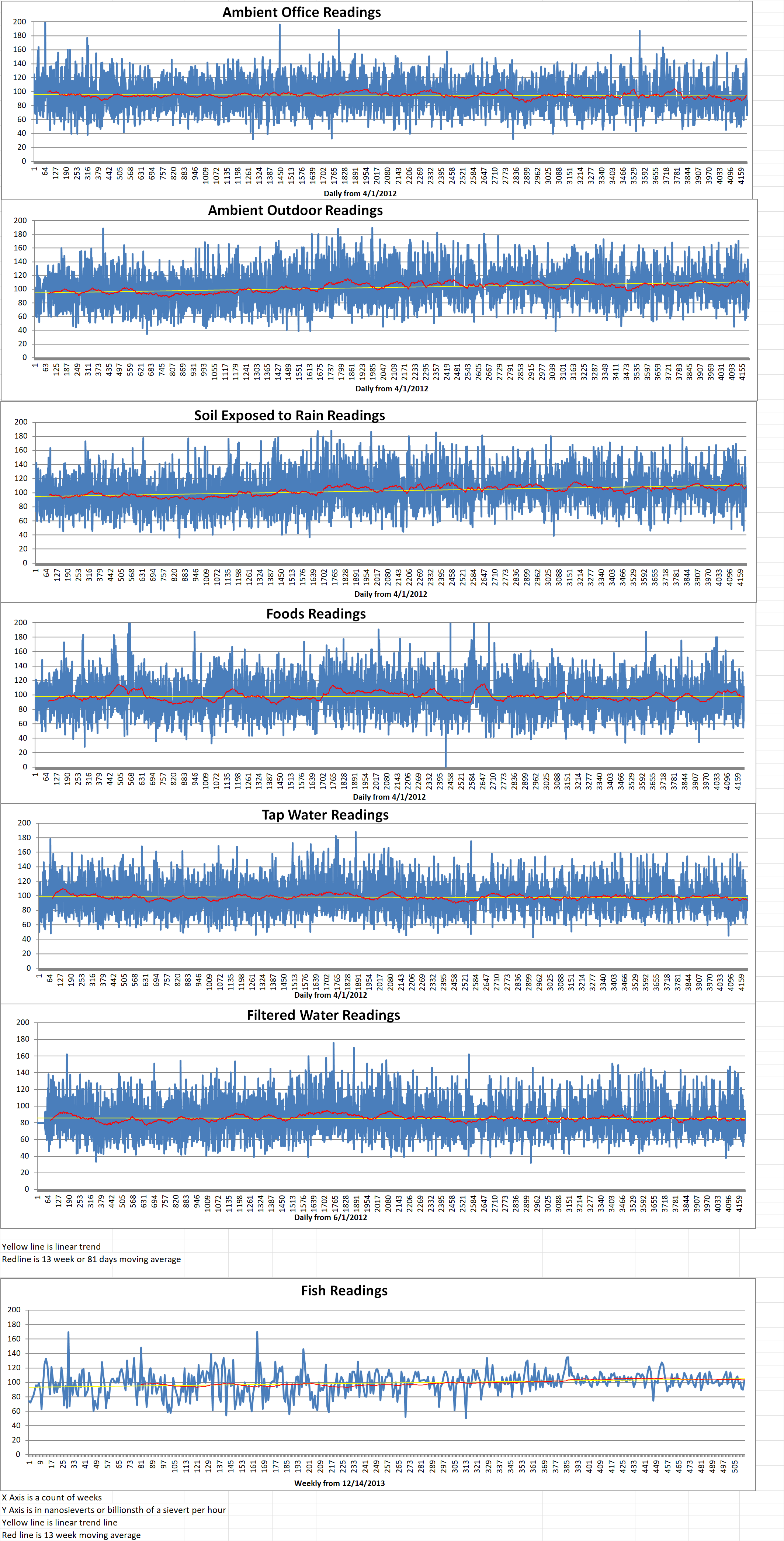
Geiger Readings for March 25, 2024
Ambient office = 74 nanosieverts per hour
Ambient outside = 82 nanosieverts per hour
Soil exposed to rain water = 85 nanosieverts per hour
Avocado from Central Market = 64 nanosieverts per hour
Tap water = 80 nanosieverts per hour
Filter water = 69 nanosieverts per hour
-
Nuclear News Roundup March 24, 2024
Court Allows Ageing Japanese Nuclear Plants to Continue Operations oilprice.com
Alberta government considering conventional nuclear power plants, minister says cbc.ca
Republican congressman suggests dropping nuclear bombs on Gaza and ending humanitarian aid scmp.com
Putin Friend Predicts Nuclear Strike ‘Most Likely’ Coming newsweek.com
-
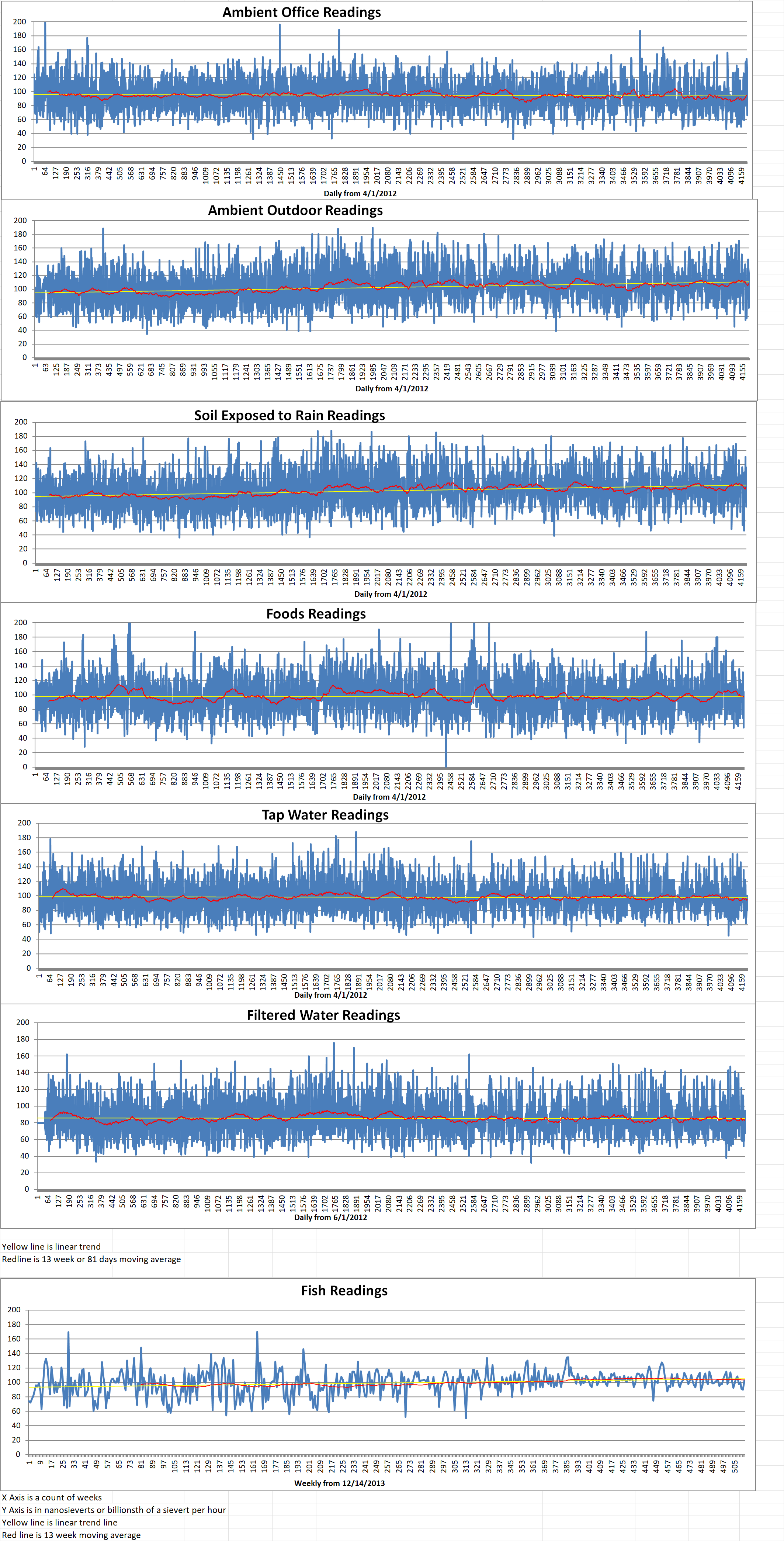
Geiger Readings for March 24, 2024
Ambient office = 66 nanosieverts per hour
Ambient outside = 106 nanosieverts per hour
Soil exposed to rain water = 108 nanosieverts per hour
Tomato from Central Market = 83 nanosieverts per hour
Tap water = 80 nanosieverts per hour
Filter water = 67 nanosieverts per hour
-
Nuclear News Roundup March 23, 2024
Texas has big potential as nuclear generation technology center: regulator spglobal.com
Town hall held for proposed nuclear plant in Pueblo kdvr.com
Flamanville EPR aiming for summer 2024 grid connection world-nuclear-news.org
Grossi’s fresh appeal about nuclear safety in Ukraine world-nuclear-news.org
-
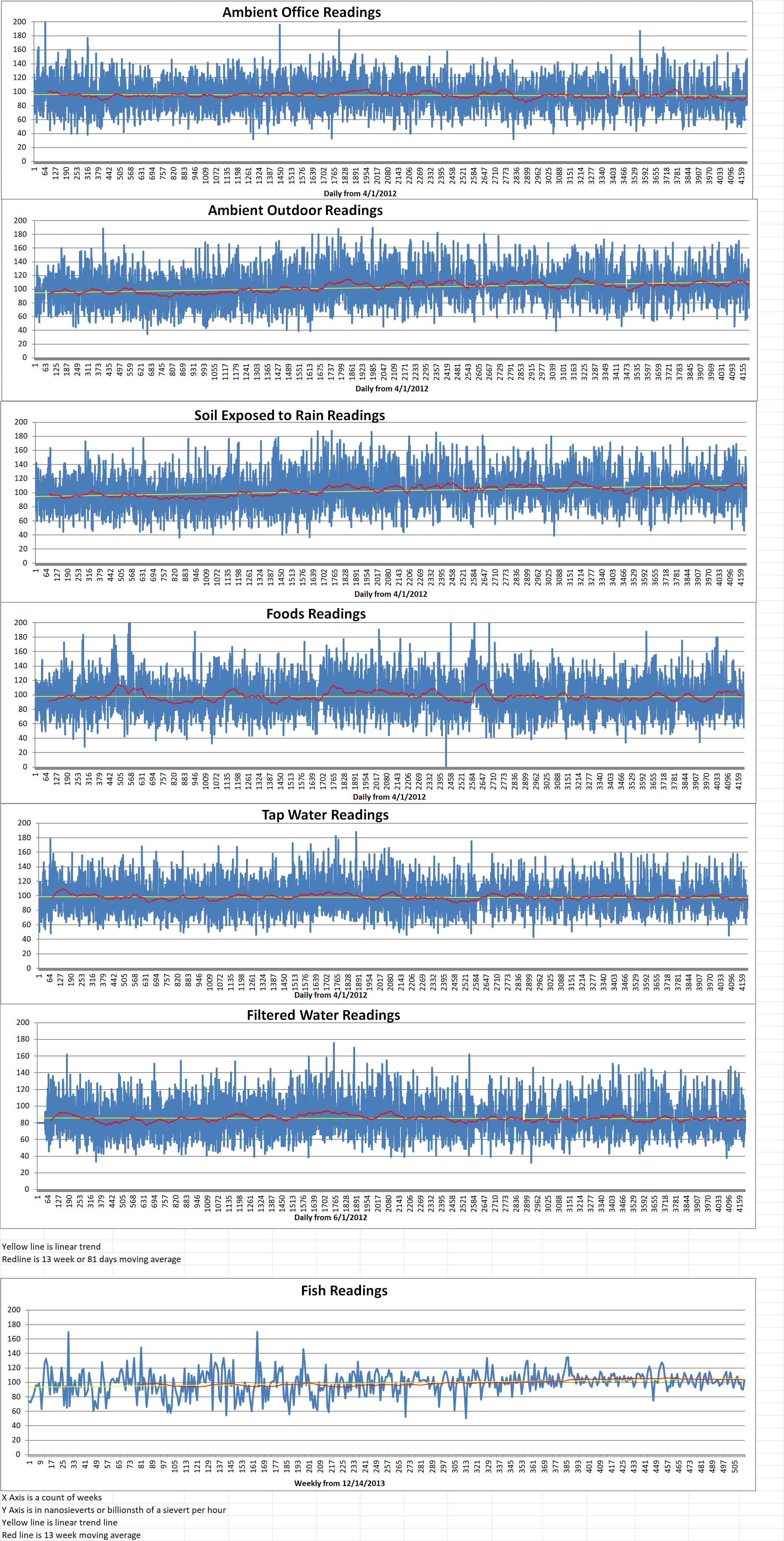
Geiger Readings for March 23, 2024
Ambient office = 81 nanosieverts per hour
Ambient outside = 106 nanosieverts per hour
Soil exposed to rain water = 99 nanosieverts per hour
Seranos pepper from Central Market = 55 nanosieverts per hour
Tap water = 100 nanosieverts per hour
Filter water = 94 nanosieverts per hour
Dover Sole from Central = 113 nanosieverts per hour
